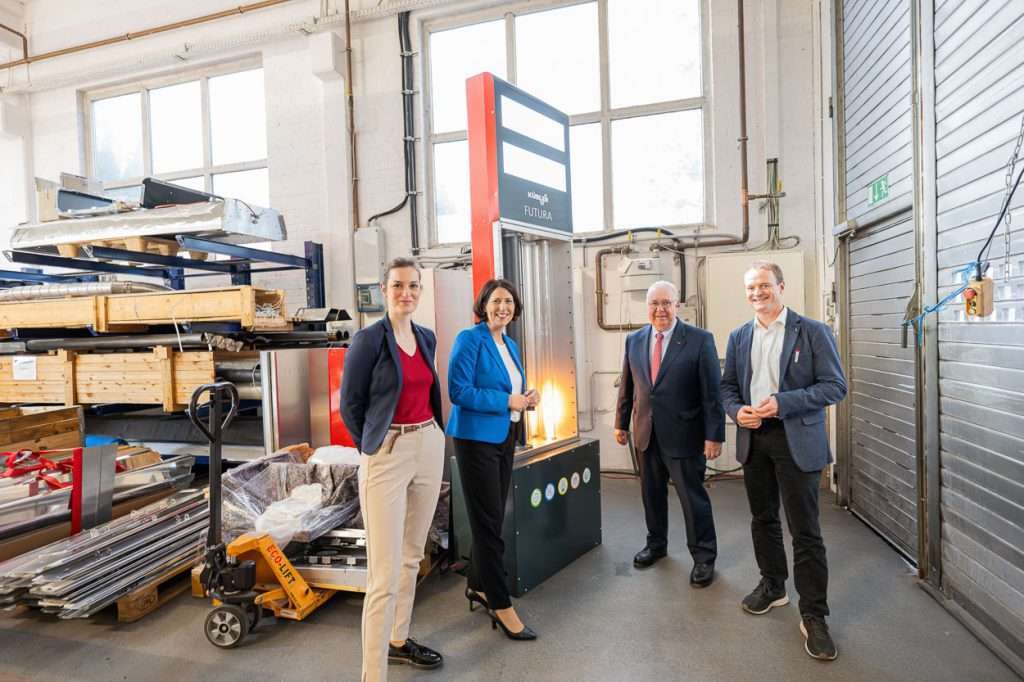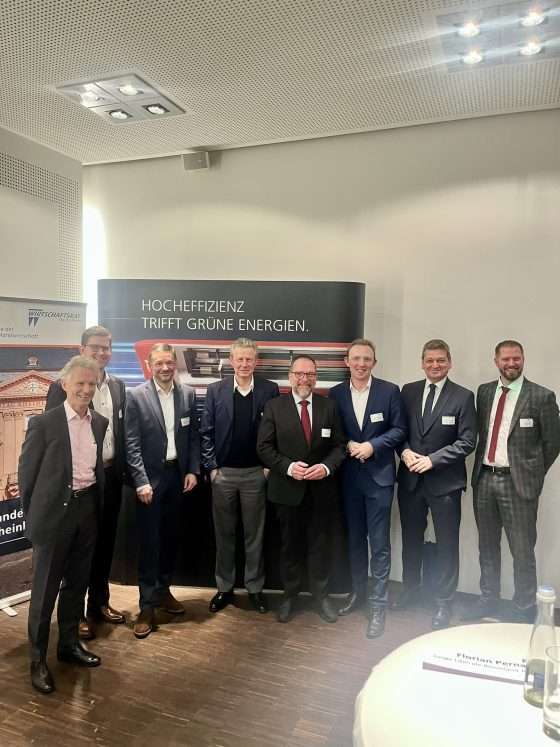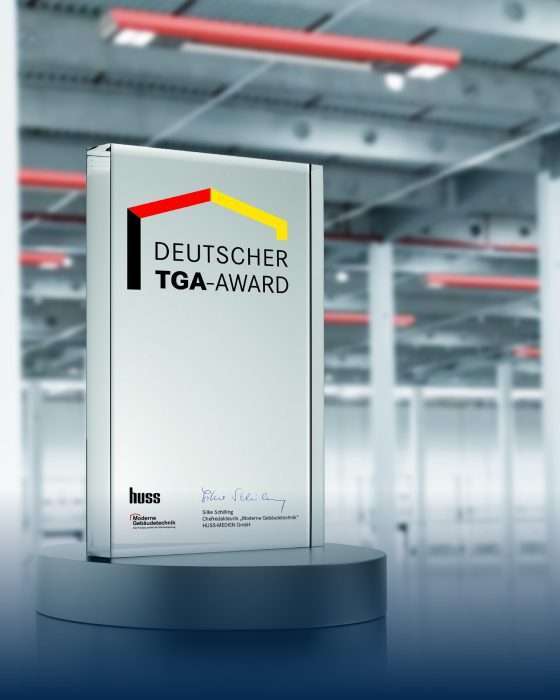High-ranking visit to KÜBLER - Minister of Economic Affairs Daniela Schmitt at the Hidden Champion

The GEG has been adopted. The funding guidelines have been finalized. But will they really come into force? The latest decision by the Federal Constitutional Court has left a big question mark over the traffic light projects. In Thomas Kübler's view, the building segment of halls with heating requirements that are completely different from multi-storey buildings has still not been adequately addressed by the political decision-makers in Berlin. This is an important topic that Minister of Economic Affairs Daniela Schmitt and Thomas Kübler discuss during the company visit.
National legislation and the current budget crisis are important items on the agenda, but by no means the only ones. The hall heating specialist has long been looking further ahead. How can the energy transition in Germany be successful? How can we jointly implement the hydrogen strategy in Rhineland-Palatinate and what must municipal heating planning achieve? Kübler is convinced that it will not work without cooperation between politicians and SMEs in particular. Their voices have been ignored for far too long.
The entrepreneur has been involved in the transfer of knowledge to politics for a good year now.
"It's not trivial to make forward-looking laws for an entire country," says Kübler. "It's important that expert knowledge is also taken into account."
The Minister of Economic Affairs can only support this point. As a strong business location, Rhineland-Palatinate has long relied on dialog. The innovation agency, which has just been launched under the leadership of Sabine Mesletzky, aims to offer companies even better framework conditions and networking opportunities in the promotion of innovation:
"When we bring business, science and politics together, there is incredible potential. We want to turn what has often been left to chance into a system. Rhineland-Palatinate should become a top location for innovation. With the innovation agency and our companies as beacons."
Kübler knows what he is talking about. His company has been developing highly efficient infrared technologies for the energy transition for almost 35 years. He knows this like no other. Hence the latest development, the FUTURA multi-energy infrared heating system, which was awarded a prize by Minister of Economic Affairs Daniela Schmitt. It transforms the great advantages of the infrared heating principle in hall buildings highly efficiently into the CO₂-free era.
Depending on availability, the innovation can process renewable energies such as green electricity, blue or green hydrogen just as well as biogenic gases. The fact that the system can still also be operated with methane is due to the still uncertain availability and natural volatility of renewables, says Kübler. Because:
"In industry and commerce, production safety is right at the top of the list of requirements - as is cost-efficient, economical operation." A requirement that politicians should also take into account.
In the evening, Kübler draws a positive conclusion from the discussion. "Innovations can only be successful if the framework conditions are right. We are very grateful that the Minister is supporting us here." He is also looking forward to the exchange with the innovation agency and the potential that can be tapped into together for the state. And the Minister of Economic Affairs?
"It is an exciting and indeed a major field of action when we think of industrial and manufacturing companies: how do you heat such halls? And at a time when we also want and need to use energy sparingly? Where energy is also a question of economic efficiency for a company? It is of course crucial to proceed efficiently and therefore very, very exciting to see what is being researched here and how innovations are being developed for the future."
We look forward to your publication!
Interested in our press photos?
Would you like to download all images from the article in the highest quality? Simply click on the button below and enjoy our press photos in the highest resolution!
-
While the public debate has so far focused heavily on residential construction, specific questions arise for industrial and logistics companies: what are the implications for large-volume non-residential buildings such as production and logistics halls? Thomas Kübler, an expert in energy-efficient hall heating systems, explains the key points from a practical perspective. Climate neutrality remains the guiding principle The German government is sticking to its goal of climate neutrality [...]
-
„Anyone who is nominated for the ‘Großer Preis des Mittelstandes’ belongs to the elite of German SMEs. This nomination alone is already an award of the highest quality,“ emphasizes Barbara Stamm, President of the Bavarian State Parliament. Outstanding achievements in five areas In the competition, the KÜBLER company is assessed in its entirety and its role within society. The [...]
-
Ludwigshafen - Clear messages, clear expectations: At the annual reception of the Rhineland-Palatinate Economic Council at the main site of KÜBLER GmbH, host Frederic Renz had clear words to say about the economic situation. „SMEs need what all companies in Germany urgently need: a clear direction and reliable political framework conditions. If you want economic growth, you have to create planning security,“ emphasized the Managing Director of the hall heating specialist. Around [...]
-
Heating halls efficiently, economically and functionally is a challenge. Because in these huge buildings with ceiling heights that often reach 20 meters, a lot of energy can quickly be consumed - energy that is expensive and, depending on the heating technology used, also causes high emissions. The building stock is often still equipped with inefficient and [...]





